Voices of the New Masculinity
Welcome to GQ's New Masculinity issue, an exploration of the ways that traditional notions of masculinity are being challenged, overturned, and evolved. Read more about the issue from GQ editor-in-chief Will Welch here and hear Pharrell's take on the matter here.
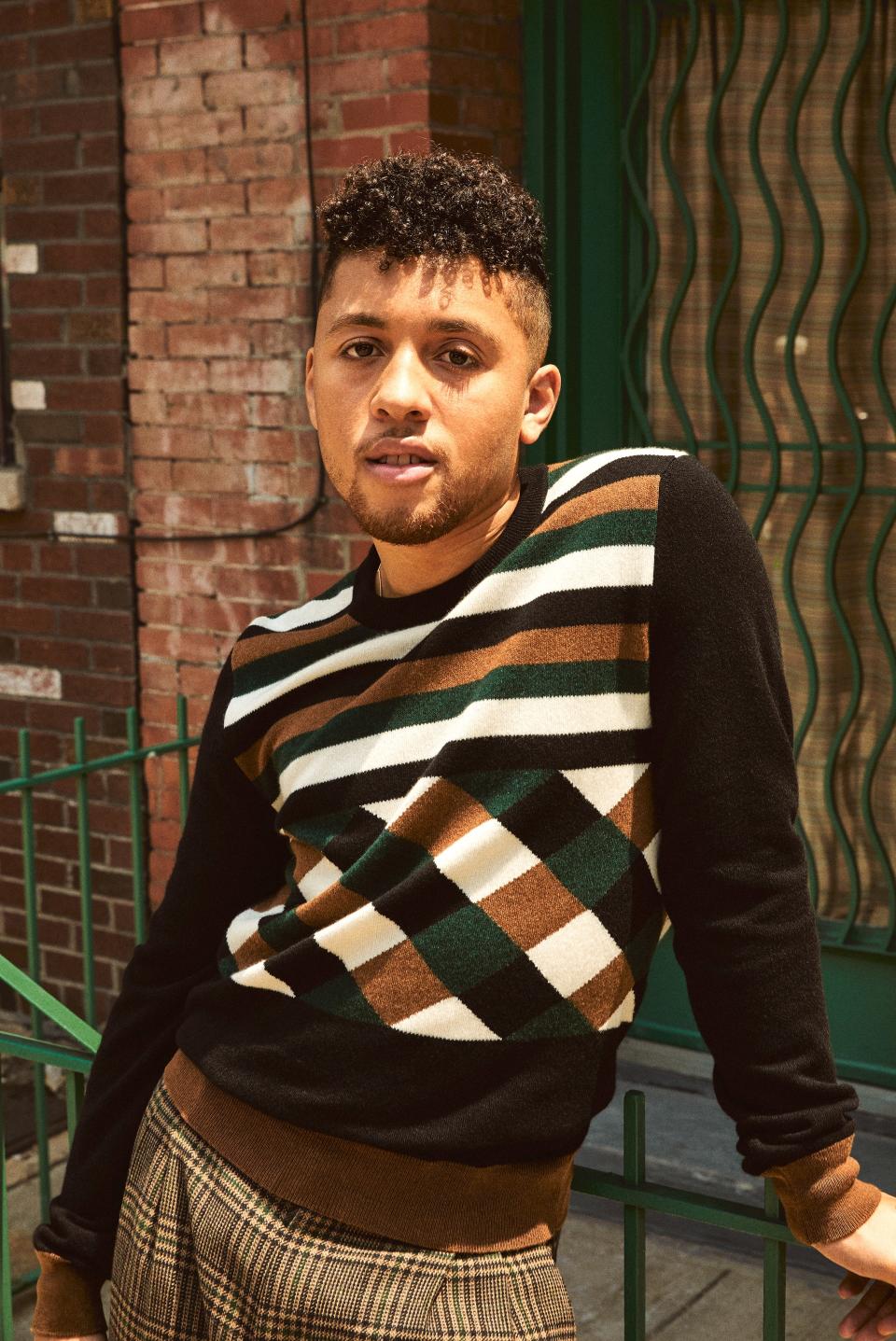
Jaboukie Young-White
The Comedian Pushing Wokeness Forward with Jokes
At 25, Jaboukie Young-White is the millennial correspondent for ‘The Daily Show’—or, as the chyron once read, an “actual young person.” His pathbreaking comedy, informed by his identity as a queer person of color, uses jokes to find what he calls “freedom” and “lightness” in the heaviest parts of the zeitgeist.
GQ: Your stand-up includes jokes about being perceived as “masc”—which you have defined as “basically just gay for ‘I'm not like other girls.’ ” Is that part of how you see yourself?
Jaboukie Young-White: I would say it's more something I've been made to be aware of. My dad is a barber, and I grew up spending most of my days after school in a barbershop. I remember there being so much casual homophobia. That environment is where a lot of my behaviors that are coded as “masc” come from. It was a survival technique. Growing up in so many of these hypermasculine, super-homophobic environments, I think that just naturally became an extension of who I am.
I always find it weird, especially in the queer community, when people fetishize “mascness” or masculinity. Because for so many people, those are actually scars, you know. They're battle scars on your personality. Which is tragic in a certain way.
Do you see any positive sides of masculinity?
The positive aspect of masculinity, to me, is just being sure of yourself. Getting to a point where you can take care of yourself so well that you can also be of service to others. That's always been so tied up with masculinity, for me. Even though I was around a lot of people who were homophobic or exhibiting these toxic mannerisms, there was also this high level of chivalry, where if a woman walked into the barbershop, you would make sure she had a seat, or if someone differently abled walked in, you would make sure they had a seat. There is a code of ethics that I think is noble and good and doesn't need to only be practiced by men. There are aspects of masculinity that we all exhibit.
It almost feels strange to say that, because masculinity has been so demonized. It almost feels like you have to come up with a different word or rebrand it.
Are there advantages in the comedy world to being perceived as masculine? Are there disadvantages?
There are pros and cons. Audiences will let me talk about things other than my sexuality.
On the flip side, when I do start talking about gay stuff, sometimes I think people want more of an explanation. I did one super-small house show in St. Louis back in 2016, and I mentioned I had a boyfriend. Afterward, one person in the audience was like, “Look, man, a little advice: That really caught me off guard.” As much as people complain about identitarian comedy, it's necessary up until people stop having normative views of everything.
Much of your comedy touches on aspects of identity that are charged. Does humor change how people hear these things?
A lot of the things I joke about are things that at one moment really felt like existential questions I was grappling with. I started doing comedy when I was 19. I was coming into who I was as a human being, just figuring out all these different aspects of me. And every time I would write a joke and it would hit, it would feel like a lock had turned. All of these disparate or chaotic or brooding thoughts had all just coalesced into a really tight joke. Into something that I could show to people and then hear laughter and be like, “Okay, I'm not crazy to be thinking these things.” Not to say that the shit I was doing when I was 19 was cutting-edge. [laughs] But to me, those realizations meant a lot.
Young-White’s first stand-up special, ‘Comedy Central Stand-Up Presents…Jaboukie Young-White,’ premieres on October 18.
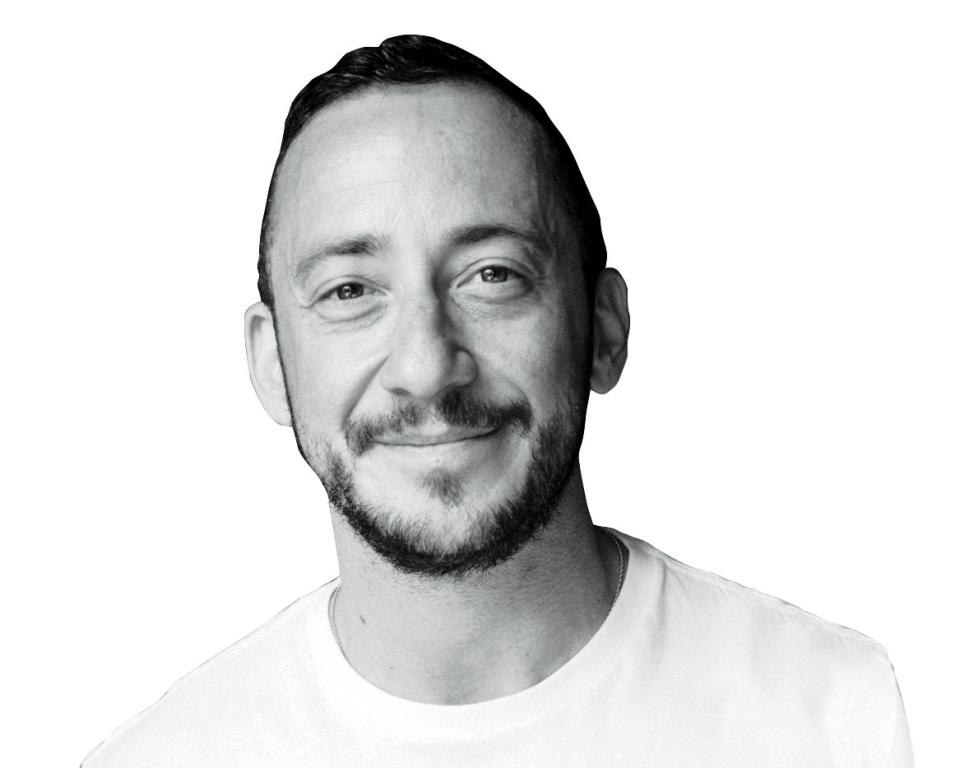
Thomas Page McBee on…Recognizing the Power of His Own Privilege
Thomas Page McBee is a journalist and author who, while reporting his most recent book, ‘Amateur: A True Story About What Makes a Man,’ became the first transgender man ever known to box at Madison Square Garden.
The first time I quieted an entire, rowdy newsroom just by speaking, I'd been on testosterone for only a few months. I'd felt gangly and pubescent, despite being 30 at the time, but my new baritone seemed to create an unconscious response in my colleagues: Whenever I spoke, they swiveled toward me. They listened keenly and with such focus on my mouth, I became self-conscious.
My life was dotted with a thousand such revelations in the first years of my transition: When a woman crossed to the other side of the street to avoid my newly weaponized body, late at night. When my uncle offered his hand at my mother's funeral. (“Men don't hug,” he told me, not unkindly.)
The expectation of what being a white man “meant” was apparent in how the world reacted to me. In the years since I first silenced that newsroom just by speaking, I figured out how to be the man I am, mostly by doing the exact opposite of what's expected of me: I listen more, I talk less, and I hug other men—even my uncle. And I think about that day when I first opened my mouth and realized how disturbingly powerful I suddenly was, simply for existing in this white man's body. I hope I never forget it.
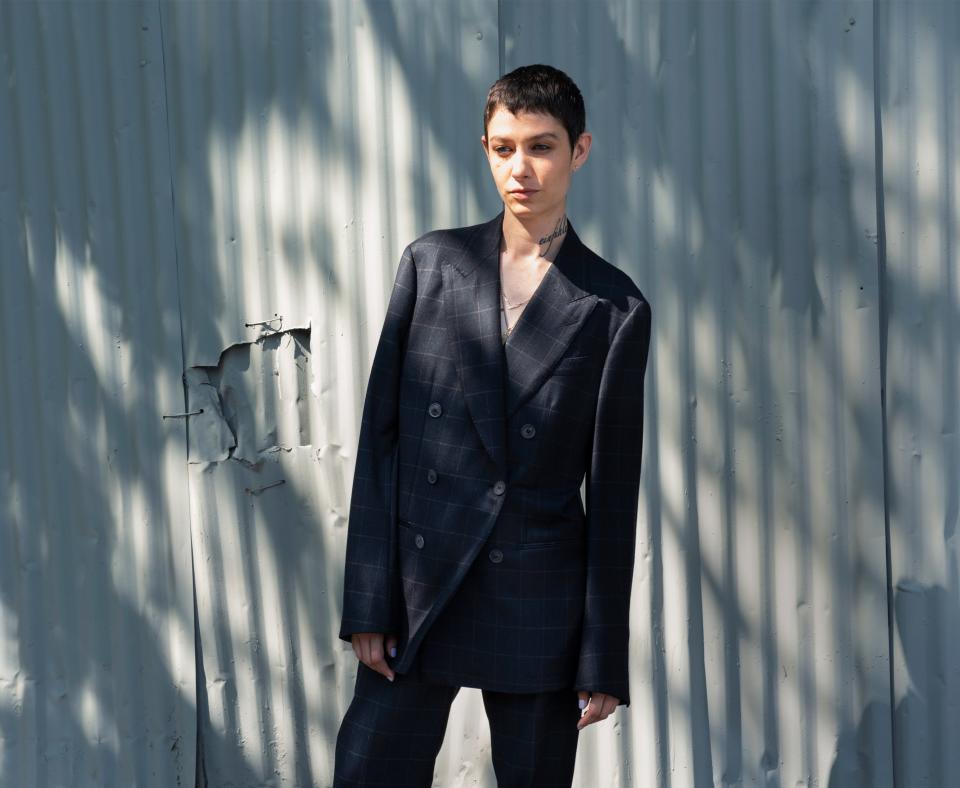
Asia Kate Dillon
The Actor Who Brought Gender Nonconformity to America's Living Rooms
Thanks to roles in ‘Billions’ and ‘John Wick: Chapter 3,’ Asia Kate Dillon has made headlines for playing Hollywood's first gender-nonbinary characters. Off-screen, Dillon, who uses the singular “they” pronoun, has become a powerful advocate for greater inclusivity in popular culture.
GQ: Is masculinity an idea that resonates with you personally? Do you feel like certain parts of the way you see yourself, or the way you present to the world, are in some way “masculine”?
Asia Kate Dillon: Traditionally, masculinity and femininity have been seen as binary polar opposites. What I was excited to discover for myself, and what I'm excited to see happening in the larger cultural context, is a redefinition of masculinity and femininity as things that are all-encompassing—that masculinity can be hard or soft, strong or vulnerable, and that those things aren't opposites of each other, because being vulnerable is a sign of strength. I'm excited to see people deciding for themselves what masculinity and femininity mean to them. For one person, masculinity might mean a dress and a face of makeup, because that's how they see themselves.
You've done a lot to bring attention to the gendered nature of acting awards. What kind of change would you like to see?
I think that the “actress” category should be removed from awards shows. If people want to identify as actresses, then they absolutely should. But we don't have categories for people who are assigned female at birth or identify as women in the director or cinematographer categories. The acting category is the only place where we're separating people, either by how they identify or based on what we assume is in their pants, or their assigned sex at birth, or their visible biological sex characteristics.
In addition to your advocacy around gender, you're also a vocal supporter of Black Lives Matter. Has your journey with gender influenced your work with other social justice movements or vice versa?
As someone who was assigned female at birth, I was already a marginalized person, and then on top of that I'm queer and nonbinary and trans. So I have several marginalized identities. And I also carry white-bodied privilege. That doesn't negate my talent, my innate gift. It just means that even though I carry these marginalized identities, I still hold power in rooms where there are queer people of color, for example. For me it's an understanding that when I'm working to make the world safer for other people, I'm also working to make it safer for myself. We're all in it together.
Asia Kate Dillon currently stars in ‘Orchid Receipt Service,’ a play written by Corinne Donly and produced by Dillon’s MIRROR/FIRE productions, at MITU580 from October 8-26.
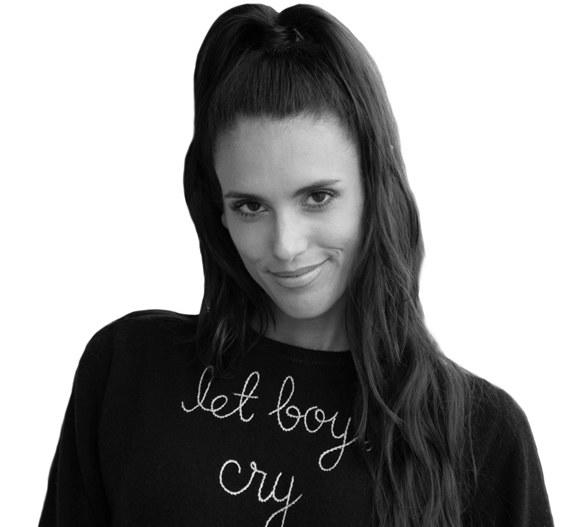
Liz Plank on…the “Marie Kondo Approach to Gender”
Journalist Liz Plank—you may know her on Twitter as @FeministFabulous—is one of feminism’s most visible faces in the social-media era. A producer of Vox podcasts and news shows such as ‘2016ish, Consider It,’ and ‘Divided States of Women,’ she recently published her first book, ‘For the Love of Men,’ a hopeful prescription for what she terms “mindful masculinity.”
One of the first things I did when I started writing my book was a social experiment in Washington Square. I asked guys, “What’s hard about being a man?” It’s a very simple question. If you want to know what’s hard about being a woman, it’s like, “How much time do you have?” But they just froze. And you could tell that not only did they not necessarily feel that it was safe to share that, they’d also never thought about it.
Women have been encouraged to ask themselves these questions about how they were raised and how it affected them. I think men have to do the same thing. I know it doesn’t feel like an action item, but really pausing and thinking about things like “Where did you learn what it means to be a man? And who taught you and how?”—even thinking about that is huge for men. When I started talking to men for my book, it became clear to me that so much of manhood is automatic. A lot of the attitudes aren’t conscious behaviors. They’ve been learned, and men don’t even know where they learned them. In the book, I compare it to the Macarena.
So much of the conversation around men is negative, especially in the wake of the #MeToo movement, and there are a million reasons for that. Women have been hurt by men, and women have been traumatized; I've been traumatized by men myself. But I wanted to approach this conversation differently, because the way we’ve been approaching it so far doesn’t work. I wanted to come up with a term that was positive, one that signaled a decluttering of masculinity, like a conscious spring cleaning. “Mindful masculinity” is the Marie Kondo approach to gender: “Does this spark joy for me? What kind of behaviors do I like? What kind of attitudes do I like, and what don't I like?” I think women have been taught how to do that. They’ve been encouraged to take on behaviors that are more quote-unquote traditionally masculine: to be more assertive, to communicate in a way that’s more in line with the way that men communicate, to unlearn their passivity and other quote-unquote feminine behaviors of making yourself smaller. I wanted to give men the opportunity to do the same thing.—As told to Nora Caplan-Bricker
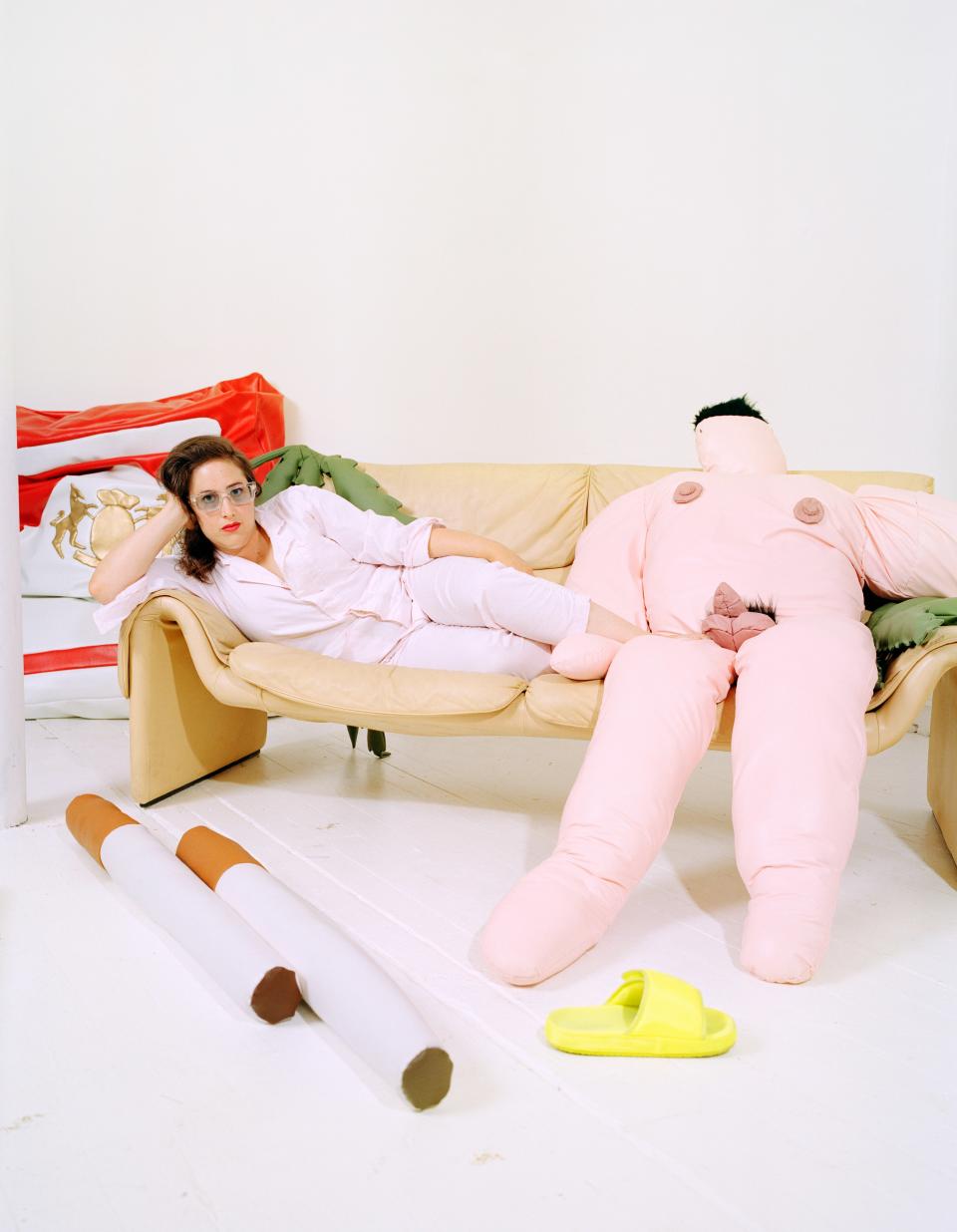
Al Freeman
The Soft-Sculpture Artist Playing with the Tropes of Toxicity
Two years ago, when her solo debut opened at the New York gallery 56 Henry, the celebrated artist Al Freeman presented objects that could easily be found in a frat house: a beer can, a lava lamp, a set of male genitals—except that these were understuffed pillows. Freeman's soft-sculpture work is an effort to examine hypermasculine spaces, an exploration of what she calls “a club I can't be a part of.”
The objects in my work come directly from what's considered to be the most toxically masculine culture. It affects me personally, and it affects the people around me, and it's everywhere—from frat houses up into our government. The soft sculptures are a way to address the problems in that culture without being didactic or finger-shaking.
As an artist, you're either critiquing things that are in the world, or you're glorifying things in the world, or you're just mirroring things in the world. This work is a mirror of the things that I wish would be softer, or more benign, or less threatening somehow—or just something that I could participate in that isn't abusive.
I think a lot of the conversations about toxic masculinity are just preaching to the converted, and to some degree I want my work to be inclusive. These are items that everybody can identify with or recognize without them being off-putting or judgmental or aggressive.
I've never tried to make funny work. But I guess it's castrating humor, to some degree. It robs the masculinity of its power and its potency. There's also the idea of all of these kinds of macho objects being cuddly pillows. The idea of a frat boy seeking comfort in a pillow version of his Jägermeister bottle, as if the pillows are teddy bears that would comfort some terrible man.—As told to Nora Caplan-Bricker
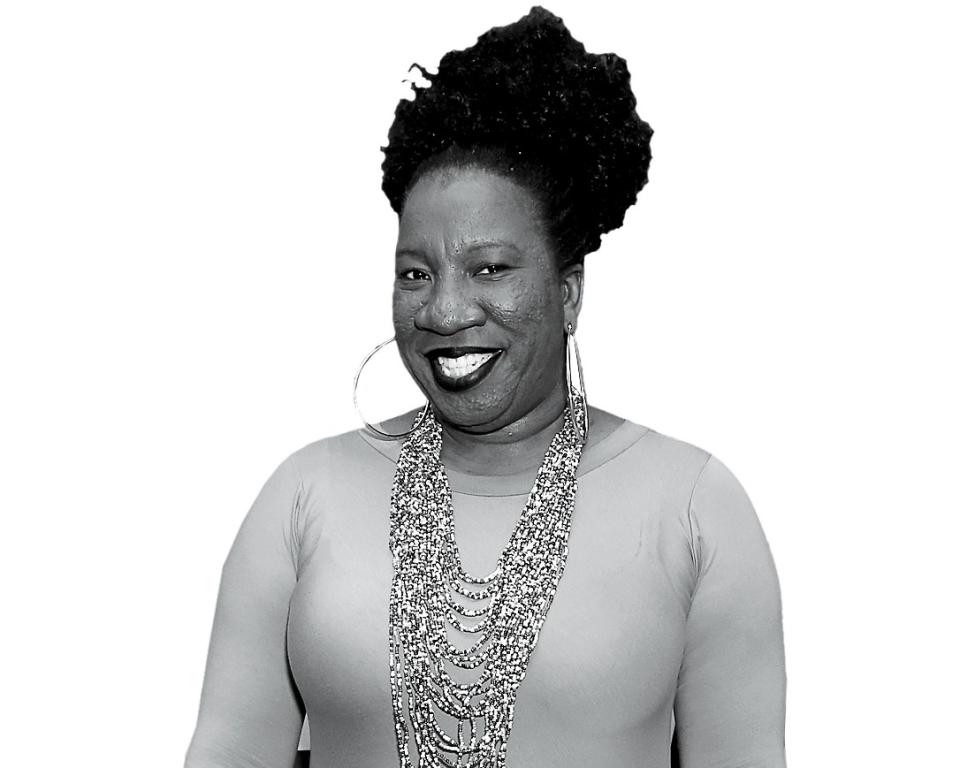
1095699872
Rachel Murray/Getty ImagesTarana Burke on…How to Break Through to Men
The founder of the #MeToo movement, Tarana Burke is an activist focused on racial justice and sexual violence. She spoke with GQ about the work she does, creating allies out of men.
It's best to start with men who at least have a conscientiousness around women's rights and see us as equals. And then it's always best to engage men who can engage other men. I may not have as much success coming into a room full of men and trying to talk to them about women's issues, but another man can connect.
A lot of times, once you start saying things like “rape culture,” “sexual violence,” “gender equity,” men's ears turn to mush. So I try to narrow it down to concepts I think men can connect to, like dignity. That's universal, and men in particular are socialized to protect their dignity. I frame it in terms of their own lives, like, “When you go into a meeting, does somebody stop you and say, ‘Hey, listen, you might want to put a jacket on and cover up your butt, because these guys are handsy’? Or ‘Watch out for Joe, because he likes to grab people by the balls.’ ” I ask them: What if that was a life you had to live?
Once you start connecting the indignities women deal with, they're like, “Oh, God.”
It's about getting them to tap into empathy. Sympathy is fleeting—you can feel sorry for somebody today and not think about it tomorrow. If you can have empathy for another person, you'll always come back to that because it connects to a place inside of you.—As told to Nora Caplan-Bricker
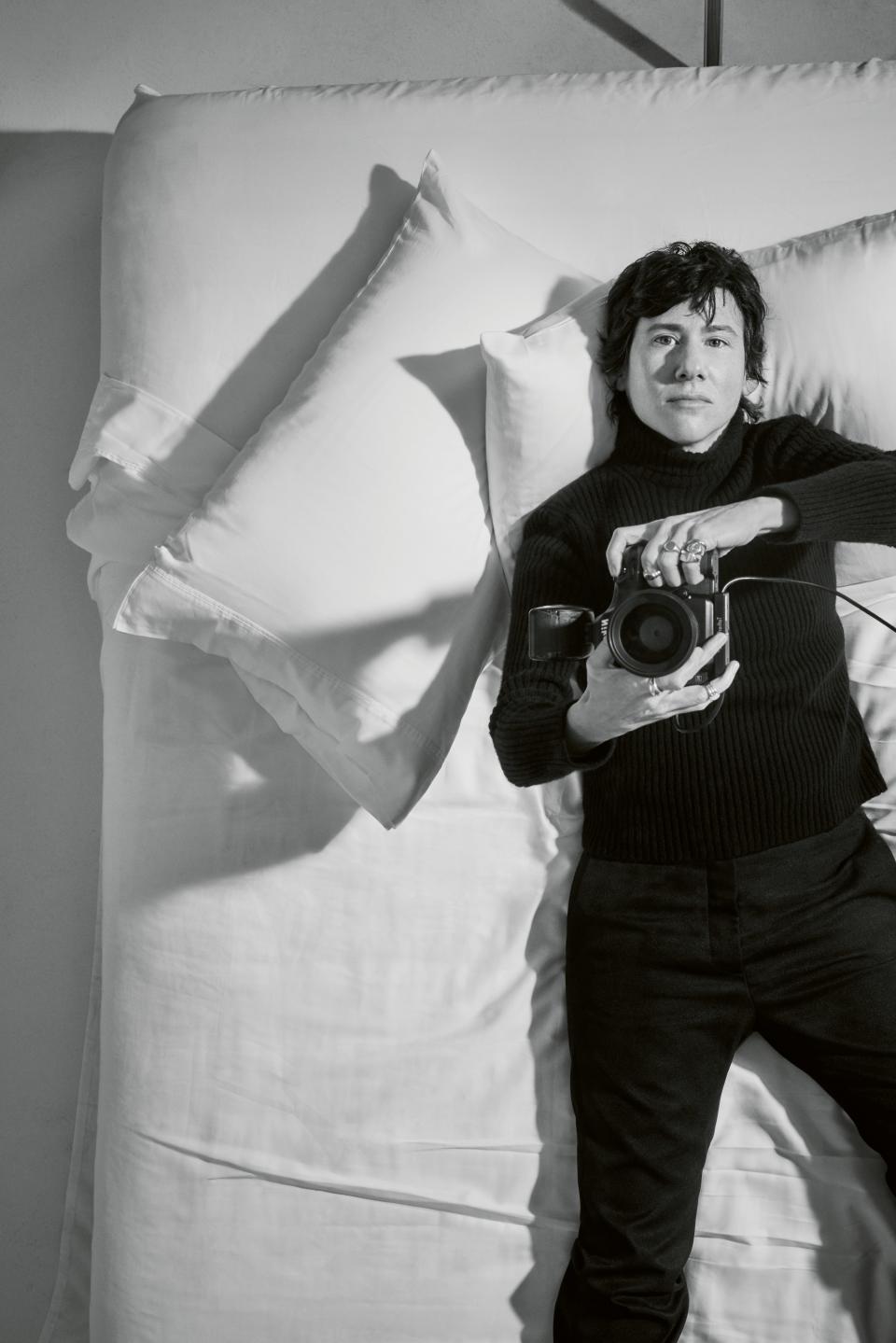
Collier Schorr
The A-List Photographer Whose Subject Is Often Gender Itself
Collier Schorr is a celebrated photographer whose work ranges from fine art to editorial to advertising while flipping gendered scripts—of assertive women, queer and transgender models, and androgynous boys.
When I go to shoot someone, I'm always curious: How will we relate? I'm not the traditional face that walks into the photo studio.
Men have fewer facial expressions than women, and so in terms of making pictures and showing a range, it is harder. I don't know if it's because men haven't been encouraged to have more emotional responses and therefore their expressions are more limited, or if it's that we as a culture are less interested in that range.
I do think that today maybe there's more possibility of play for men. Play in the sense of just being able to shift around and borrow—just kind of soften. Women probably can't appreciate how big a small shift is in masculinity. Maybe there's permission for men to be a little more curious about who they really are. I'm not sure that people have encouraged men to be curious about who they are. And so maybe in pictures I try to play with that a little bit.—As told to Nora Caplan-Bricker
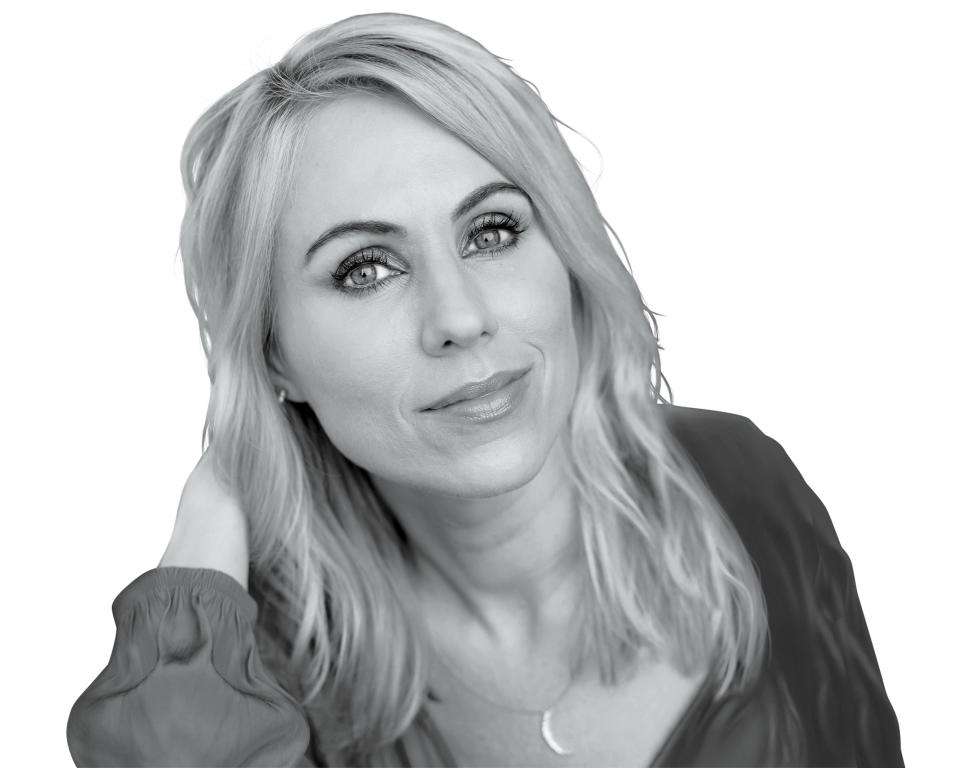
Katrina Karkazis on…the Science of Masculinity
A cultural anthropologist, Katrina Karkazis is a professor at the Honors Academy at Brooklyn College and the co-author of the new book ‘Testosterone: An Unauthorized Biography.’
GQ: Your new book, Testosterone: An Unauthorized Biography, with co-author Rebecca M. Jordan-Young, debunks some commonly held ideas about the connection between testosterone and masculinity. What do people get wrong about this hormone?
Katrina Karkazis: High T is thought to be the substance in the body that produces masculinity—physically, through muscles and hair, but also behaviorally. But it doesn't actually map on very well to what we understand as masculinity.
What's an example of a stereotypically masculine behavior that actually has nothing to do with testosterone?
Aggression is a great example. Researchers say the relationship between testosterone and aggression is weak or nonexistent.
How do you think the idea that masculinity is rooted in biology impacts the way that our society views gender?
As #MeToo was heating up, there was a conversation between the writers Ross Douthat and Rebecca Traister. She asked him what's at the root of this, and he said testosterone. I think he was joking, but people believe that. And if we accept that gender hierarchies are tied to evolution and biology, then it seems impossible to change.
How so?
Testosterone often gives men a pass for their negative behavior, and a pass for their success. With titans of Wall Street, for example, testosterone didn't have anything to do with those men reaching the highest level in their field—there are other structures that elevated men and suppressed women. If biology and testosterone aren't the explanation, then we have the much harder work to do of addressing the social causes.
So, if we move away from the idea that biology explains the behavior we associate with gender, how could that open up the definition of “masculinity” a little wider in our culture?
I hope that we can stop attaching so many behaviors to masculinity as though they're exclusively the province of men. Because they often happen to be things that are valued, like risk-taking or athleticism. Conversely, I think we’re reaching a point where we can shove more under the umbrella of masculinity. Men staying home and parenting their children, or men expressing feelings in public ways, can be understood as masculine. There are many things that are shared human behavior, shared human feelings, that don't need to be labeled masculine at all, or else can be fit under the umbrella of masculinity.
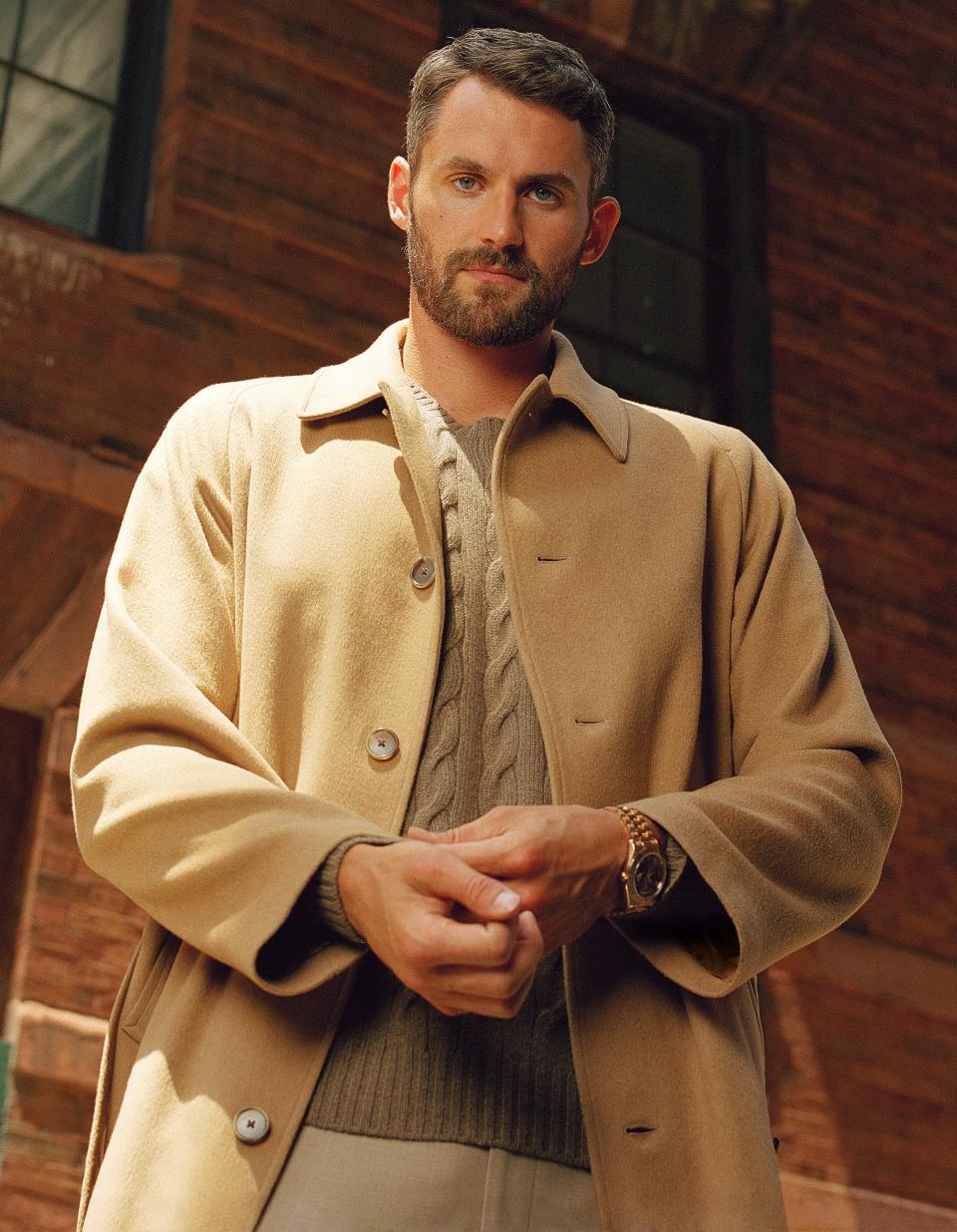
Kevin Love
The NBA Star Making a Case for a New Kind of Toughness
After raising his voice about his own struggles with depression and anxiety, the Cleveland Cavaliers' Kevin Love has become a new kind of role model, pushing to modernize men's attitudes toward mental health—and what it means to be strong.
I remember 2008, I had made it to the NBA, and I was like, “I'm super emotional, but I'm not going to show it.” My playbook from my dad was to never show weakness. Never cry. Always show ruggedness, toughness, in everything you do.
Last year I was in such a terrible place. And I was just suffering silently. After DeMar DeRozan came out and said he dealt with depression, I felt like saying, “Hey, this is what I'm going through.” We still have what you define as masculinity. We still have that ruggedness, that toughness. But we're more evolved in our thinking. You're allowed to be soft. At some point in your life, you're going to have to apply some softness or a gentle touch to something.
Basketball is a very emotional game. I thought it was so cool when Giannis Antetokounmpo just let it all hang out when he accepted the MVP. Water of the heart, right? He was just crying, crying, crying. Showing that vulnerability, to me that's supercool. It's special to see that in our game, we're supposed to be emotional.—As told to Nora Caplan-Bricker
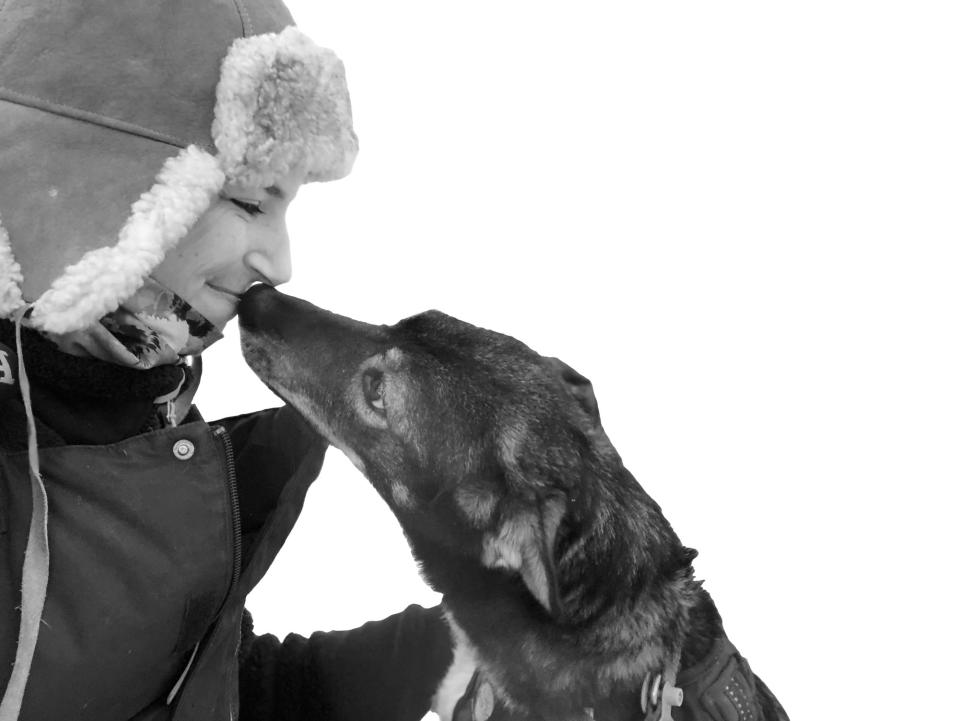
Blair Braverman on…Occupying Traditionally Male Spaces
Writer and dogsledder Blair Braverman’s book, ‘Welcome to the Goddamn Ice Cube,’ about her education as a musher, put a feminist spin on the hyper-masculine canon of adventure writing. Fresh off running her first Iditarod earlier this year, she continues to chronicle her experiences bending gendered expectations in the great outdoors.
GQ: In your book, you write about encountering a lot of sexism in your early years as a musher. As you’ve grown more established in the sport, do you still deal with men who don’t think you should be there, or don’t believe a woman can be as tough as a man?
Blair Braverman: Mushing is one of the only sports where men and women compete against each other, so in that way it’s unusually egalitarian. When it comes to the races, I’ve found that male mushers are very respectful of female mushers’ skills, because we’re all out there together: on the same trails, facing the same challenges, weathering the same storms.
When I encounter sexism now, it’s usually from non-mushing men, who seem to think that because I can do it, the sport isn’t that hard. Like dudes at a bar who hear that I ran the Iditarod—a thousand-mile race through the Alaskan wilderness—and say things like, “Oh, yeah, I’ve thought about doing that.” Really? You’ve thought about competing at the elite level of a sport you’ve never even tried? Be my guest, but don’t come complaining to me when you freeze to death.
Despite the presence of many elite women athletes, adventure sports remain synonymous with a certain rugged masculinity in the cultural imagination. Why is that link so persistent?
From the time settlers came to what would become the United States, the American narrative has been one of (white) men risking everything to tame the wilderness and shape it for their own purposes, whether they’re pioneers or cowboys or prospectors. For a woman to participate in adventure sports or expeditions, on her own terms, complicates the narrative: What if it’s not man versus nature anymore? What if we’re not—gasp—conquering the wilderness at all? What if a woman’s skills can surpass a man’s in a realm that’s been safely cordoned off as male—which is to say, a realm that’s been safe from the possibility of a woman coming in, succeeding, and thereby threatening the supremacy of masculinity itself? If any part of that man-versus-nature narrative is fallible, it calls into question some very deep-seated stories and values that our country is based on. And once that foundation is built, it’s awfully hard to change it.
Many of your themes as a writer—toughness, courage, the desire to test one’s limits—are traditionally associated with masculinity. Are there ways in which you see yourself or your work as masculine?
Nope. My work is women’s work—and that work happens to involve crossing vast expanses of frozen wilderness with my dogs. It is women’s work because I am the one doing it. I see part of that work as challenging sexist assumptions, some of which relate to masculinity and femininity, and one of the biggest assumptions we have about those categories is that they’re mutually exclusive. Think about someone being brave, or speaking truth, or protecting their loved ones: Those efforts could be masculine, feminine, or something else entirely, all depending on who’s doing them. And we have a lot to learn from each other.
What does masculinity mean to you?
Masculinity is a man being authentic to himself.
Where do you think or hope that the genre of adventure writing, and particularly its relationship to masculinity, is headed? How is the genre’s relationship to masculinity changing, or how would you like to see it change?
I think it’s already changed, even if perceptions aren’t changing as quickly. Writers like Jill Fredston, Rahawa Haile, Eva Holland, and others are breaking down boundaries every day.
You have an incredibly devoted following on Twitter and in general. Anecdotally, do you have a sense of the gender breakdown of your fans? For a lot of women, seeing the things you push yourself to do seems pretty life-changing—why do you think that is? Do you find that men (generalizing very broadly here) tend to respond to your work as strongly as women do?
I think my followers are about two-thirds women and one-third men. I’ve found that men tend to respond to the gendered elements of my work in different ways; women might see themselves, but men see a different way of experiencing the world, a parallel universe that’s less visible to them, that can help them understand the experiences of the women they care about. Some of the most meaningful responses to my book, Welcome to The Goddamn Ice Cube, have come from men—men who say it helped them to connect with their wife, or to start a conversation with their teenage son. And of course everybody—regardless of gender—likes dogs.
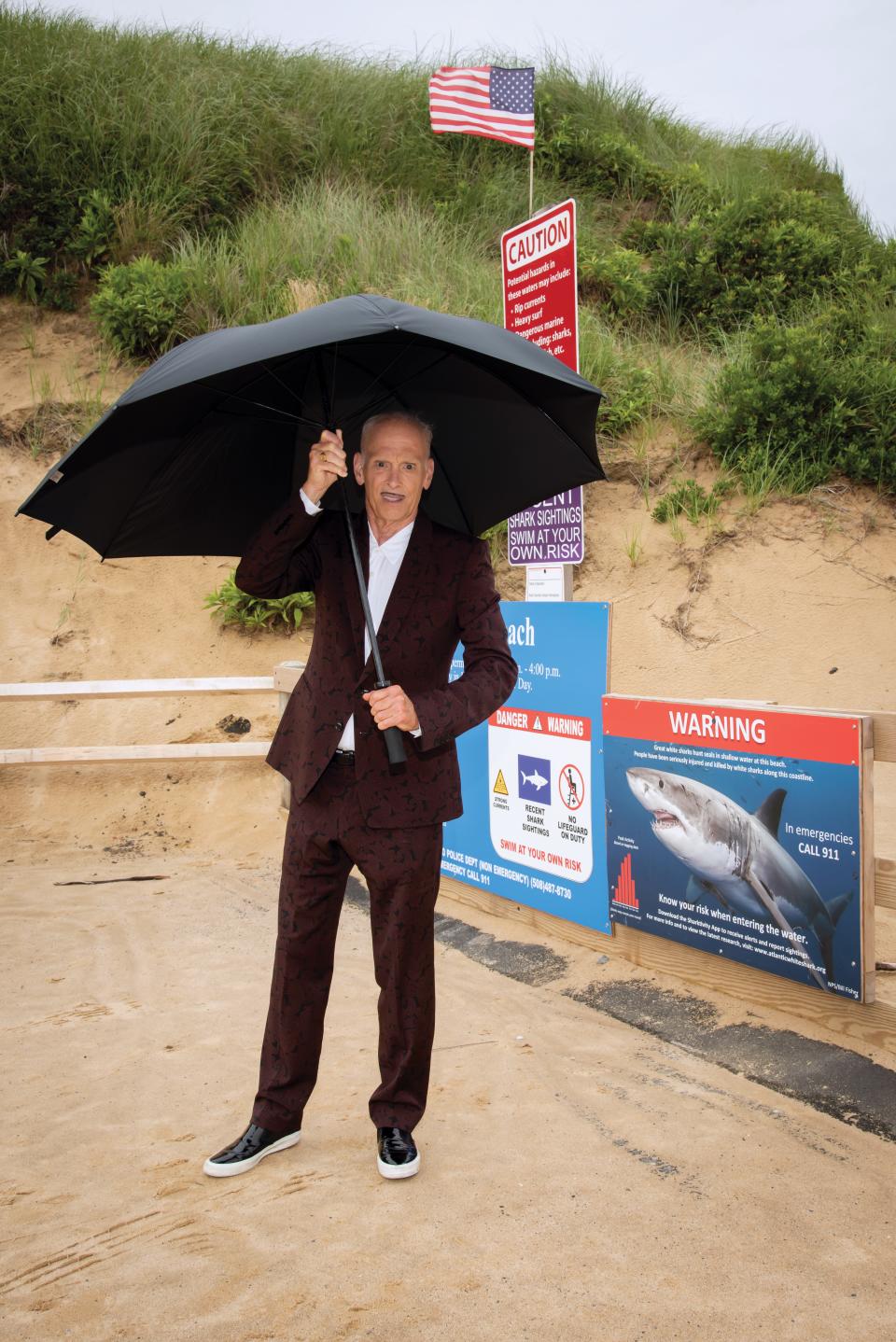
John Waters
The Filmmaker Who’s Been Rethinking Masculinity Since Before It Was Cool
John Waters has been called the King of Camp, the Pope of Trash, and the Prince of Puke. At 73, the filmmaker behind ‘Hairspray,’ ‘Pink Flamingos,’ and ‘Polyester’ might be the closest thing we have to a patriarch of unconventional manhood. He spoke with GQ about how the culture seems to be catching up to him—and how the meaning of “masculinity” has evolved.
GQ: As the culture has shifted over the course of your career, how do you think the definition of “masculinity” has changed?
John Waters: It has taken on so many different meanings in my lifetime—today it's almost a word you can't use. When I was young, it was a threatening word. It meant that you were going to be hassled for not liking sports or not wanting to fight. And now “masculinity” is a word that is embraced by transgender men. It can mean so many things to so many different communities. It can be a very negative word, or it can be a positive. I think it should be a neutral word, and so should “feminine.” Then they can't be used against anybody.
In your new book, Mr. Know-It-All, you ask, “What is a real man today?” What's your answer?
A real man is not scared of strong, smart women. Freud was wrong. Men are the ones who have penis envy—for good penises that respect women and are not threatened by people who are smarter or more powerful than them. And I think that is what a good man is.
How widely do you think your notion of “a good man” has caught on?
It's an economic question. It depends on where you live in the country and how you're doing financially. And I think the more men are threatened, the worse they get at masculinity. Humor is how you get people to change their minds. Humor is the way that people escape. Humor is how you can embrace the enemy.
You write in the book that with all the progress we've made, there's little left that feels radical.
I'm glad it's not illegal to be gay anymore. But I go to the gay parades, and it's mostly all straight people showing their respect. It's a good step. But Stonewall was a gay riot. And I don't know why gay people aren't rioting now.
I wonder what happened. All those high school students were walking out of school. That was so brilliant. Why did they stop? Why aren't people marching every day? I don't get it. It seems to me there's more to be angry about than there has been in a long time. I think we need to use humor to humiliate and embarrass the extreme right. I'm not for violence, but I'm for humor as terrorism.
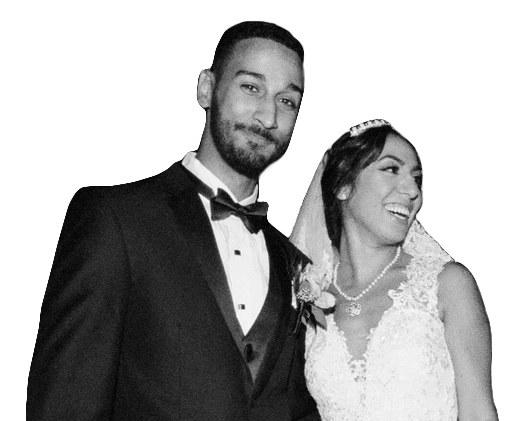
Aymann Ismail on…His Modern Muslim Marriage
Writer Aymann Ismail covers the intersection of masculinity, race, and relationships as host of the podcast ‘Man Up’ at Slate. He and his wife, Muslim chaplain Mira Abou Elezz, talked about what it means to them to call their partnership a Muslim marriage.
Aymann Ismail: My ideals for what a marriage is supposed to look like were influenced by both American culture and Islam. I had two separate expectations that were kind of in conflict with each other. The American in me was like, All right, you meet somebody, you date for however long, maybe even move in together first, then get married. The Muslim in me was like, That’s not gonna happen.
Mira Abou Elezz: Yeah. Religiously, we're not supposed to be doing any kind of physical intimacy until we're married. And culturally it just doesn't look appropriate for a young couple to be spending nights with each other when they're not married.
When we got married, I was about to move to L.A. My mom floated the idea. She was like, you guys are going to want to visit each other while you’re in California, and if you’re married, it will just be a lot easier for everybody.
Aymann Ismail: I think it played to our advantage that we did it in a very mature, grown-up way. I think, had we followed some kind of script, the American one or the Muslim one, then maybe I’d be caught up in whatever expectations I carried over from my childhood.
I wanted to ask you if you felt any pressure to be any particular kind of Muslim. There aren’t any Muslim families on TV, really, so my only frame of reference for what a Muslim marriage is supposed to look like is my parents’. Their relationship is very informed by scripture, which makes me feel like I’m falling short when it comes to being a Muslim man. I get insecure about how Muslim I really am.
Mira Abou Elezz: Well, we're both Muslim, so our marriage is Islamic, right? That’s all it takes.
Aymann Ismail: To be honest, the first time I opened a Koran to read the verses about marriage was to answer anti-Muslim trolls who were using those verses to prove to me that I must be complicit in abusing women if I’m Muslim. One verse they’d use a lot—I'll read it in English—was "Men are in charge of women because Allah has made some of them to excel others." I read the original Arabic closely, then looked for different English translations, and found it translated someplace else as “Men are the maintainers of women.” That actually made sense to me. Maintainer, that’s a good word, like, protector, supplier. I gelled with that really hard.
Mira Abou Elezz: Our marriage doesn’t have to look like other Muslim marriages. It’s about principles, like love, and respect, and humility, and faith in something bigger than us. There are verses I didn’t understand when I was younger, but as I get older, I'm starting to understand some of the wisdom behind those rules and applying them to us. It doesn't feel like a box anymore. It actually feels freeing.
Aymann Ismail: Islam to me is really starting to feel more like a path you take, not a destination. The way we grew up, it just felt like a list of rules. I see our relationship as a kind of protest—both against that idea of what I expected a Muslim marriage to be, and against the anti-Muslim stereotypes in American culture. When I think about what our relationship is, it's already, on its own, a fuck-you to the people who think that Muslim men are violent, possessive, and abusive. The more that I am a caring Muslim husband to you, the more they look stupid.
Mira Abou Elezz: I think in a lot of cases, being yourself is subversive. Being authentic is revolutionary.

Killer Mike & Shana Render
The Hip-Hop Lovebirds with an Activist Streak
Rapper Killer Mike and his wife, Shana Render, are more than just Atlanta hip-hop royalty: They're a modern-day black superhero duo. Their weapon of choice to fight the white patriarchy? Traditional values mixed with progressive implementation—a recipe that Mike has used for years in his music and his activism, where his ideas often defy easy categorization. (He's a vocal supporter of Bernie Sanders, for instance, but also a staunch gun-rights advocate.) We met the couple at their Batcave, the Blue Flame Lounge, one of Atlanta's iconic strip clubs, to learn how they think about modern gender roles—and how they've built the kind of relationship we can all aspire to.
GQ: How would you describe the sort of partnership you've created?
Killer Mike: This is Desi Arnaz and Lucille Ball. Two people who are sharp and together. Mobbing. I open the car door, and usually she cooks. That's more to do with the fact that she's a much better cook than I am. But she's my partner in every aspect of the word.
When it comes to your businesses—your real estate holdings, your barbershops—who is responsible for what?
Shana Render: Mike is the face of the place, but I'm the business of the businesses. I make financial decisions. Any problems at the shop, I know about them first.
Killer Mike: Shana has a masterful business mind. Much better than mine. It's my wife who was smart enough to make these investments.
What's the next investment?
Render: I want to open up a hotel. Hopefully, Georgia will legalize marijuana soon so we can have a smoke room in it.
Why do you spend so much time at the Blue Flame?
Killer Mike: The black strip club is the $25 Soho House. The connections are just as deep.
Render: A lot of the dancers are like, “What should I do with this $10K I have saved?” We give them advice on moves they should make.
Killer Mike: Catering, massage companies, real estate…
Render: Sometimes Mike jokes, “I'm the mastermind behind this shit!” But I quickly remind him that I'm the master behind that mind.
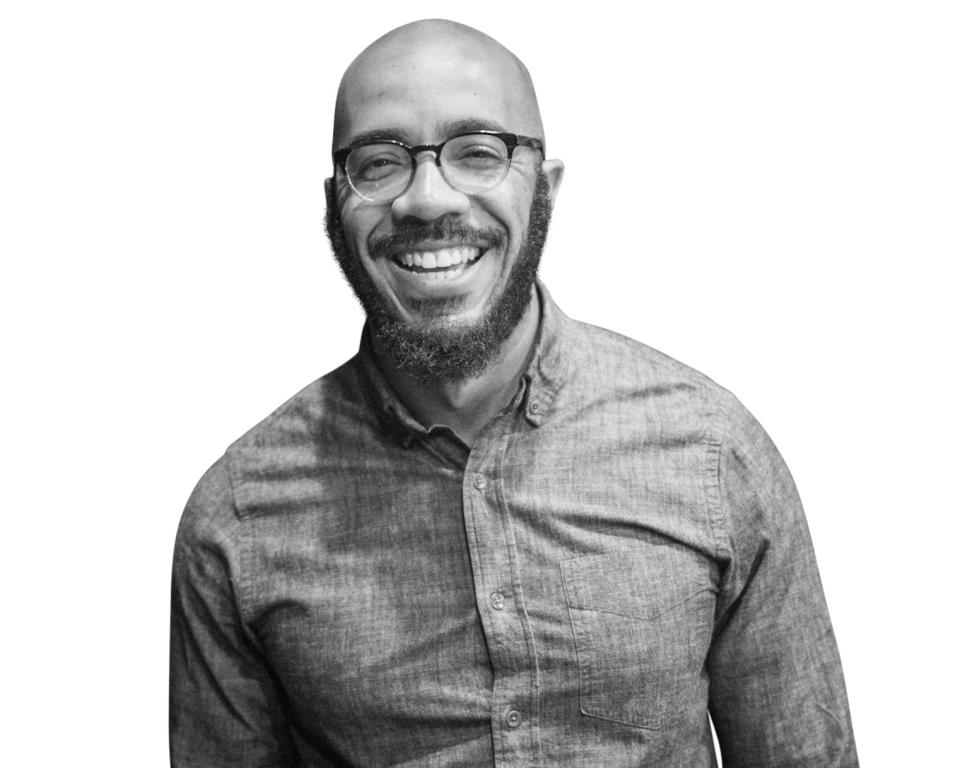
Clint Smith on…What It Takes to Be a Good Dad
An author and poet, Clint Smith is completing his Ph.D. at Harvard.
I grew up thinking a good dad was somebody who did what the mom asked them to do. I saw a tweet a couple of months ago where somebody said that their friend had lived in this house for years, and there was a soap dispenser above the sink in the kitchen. And as they were moving out, the father came in and was like, “Wow, it's amazing that this soap dispenser has never run out of soap in all these years.” The rest is self-explanatory.
It's important that I unlearn the desire to feel that I should be commended for doing things that I should be doing anyway. Recently, I walked into CVS. I was holding my two-year-old's hand and pushing the baby in the stroller, and people literally started applauding. I'm cognizant of the fact that this is wrapped up in a lot of racial and gender politics—what it means for people to see a black man with his kids. But nobody would ever applaud my wife. We also have reams of social science showing that black fathers are far more involved than they are often given credit for. It's important for me not to get caught up in the spectacle of “good black dad”-ness that makes me think I'm doing something special.
I think more men are starting to be more thoughtful about the sacrifices being made for them. It's a process. It's not meant to be easy. But it's worth it. Because you are building a more equitable world that your kids will one day occupy.—As told to Nora Caplan-Bricker
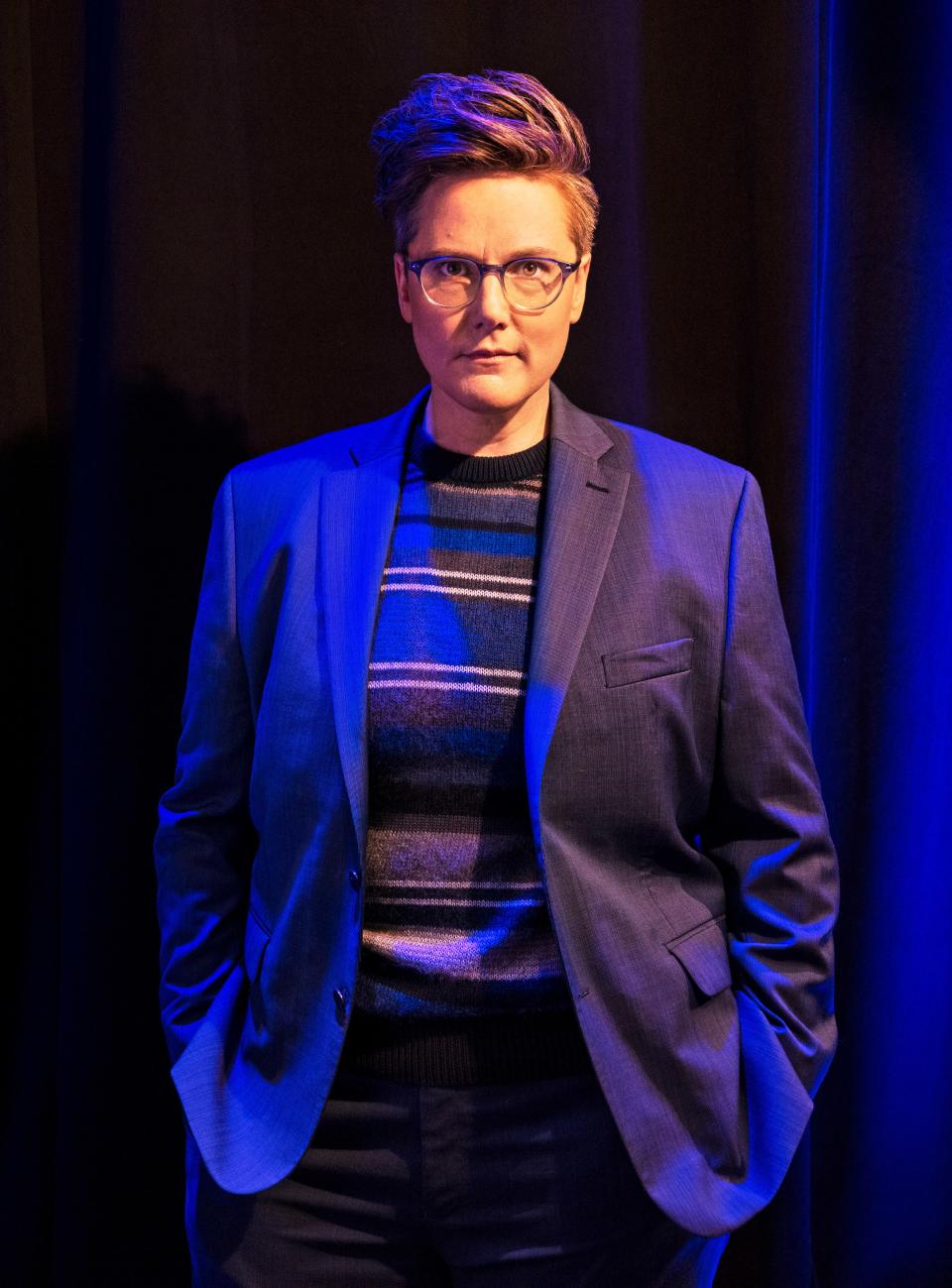
Hannah Gadsby
The Comic Who's Taking on Toxic Masculinity
Hannah Gadsby's stand-up special ‘Nanette’ was the most discussed comedy act of the #MeToo moment. Rooted in the personal trauma of homophobic violence, it used sharp humor to proffer a devastating critique of misogyny. She's now touring with a new show, ‘Douglas,’ that'll hit Netflix next year. GQ asked her what she'd like to see more men understand—and do.
Hello, the men. My advice on modern masculinity would be to look at all those traits you believe are feminine and interrogate why you are so obsessed with being the opposite. Because this idea that to be a man you have to be the furthest away from being a woman that you possibly can is really weird.
Why is everyone so scared of not being masculine? If you consider many of those in power, those who claim to be “leading” the world at the moment, you've got a lot of hypermasculine man-babies, with terrible hair and no ability to compromise. These are the cool guys who are taking us all to hell in a handbasket they didn't pay for.
So here's a thought experiment: What if you, the men, looked to traditional feminine traits and tried incorporating them into your masculinity?
Women are always being encouraged to stir masculine traits into their feminine recipe. We are told to “be bolder!” “Speak up in meetings.” “Exaggerate your skills.” All that Lean In sort of crap. So perhaps it's time for you, the men, to be more ladylike. How about you scale back on your confidence? How about you try not to act in every situation? What if you tried to refrain from sharing your opinions or co-opting other people's ideas? How about yielding to people walking in the opposite direction? Or even just attempting to see them?
How about you try pretending that you're the least powerful person in any room, and that no matter how hard you work you'll never be the most powerful. Walk around like that for a couple weeks. And then call your mother.
This is the first time that straight white cis men have been forced to think of themselves as anything other than human neutral. And that must be a difficult thing. And I don't say that to be sarcastic. I can see how it is a tough spot. It is not your fault. You didn't build this mess. You were born into it, like the rest of us. What I am saying is, I have empathy for you. And empathy, by the way, is one of the traits that women are most famous for. You might know it by its other name: “weakness.” But don't be fooled—empathy is a superpower, and it's the only one that any human has to offer.—As told to Nora Caplan-Bricker
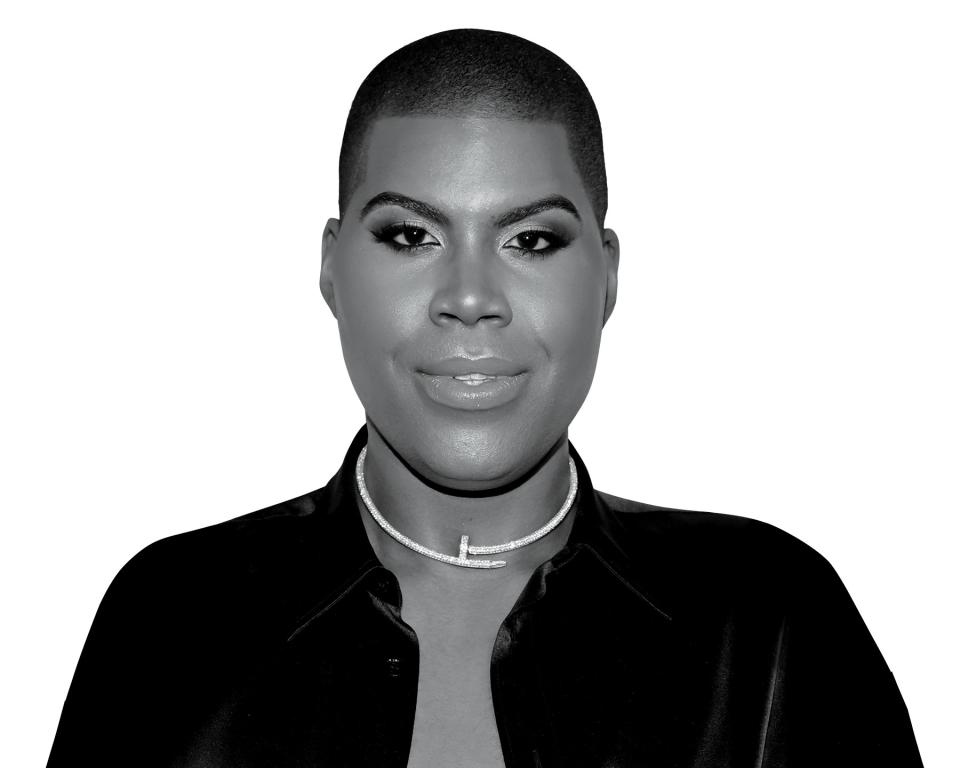
1135892716
Amy Sussman/Getty ImagesEJ Johnson on…The Joys of the Male Beauty Movement
EJ Johnson is a television personality who, by embracing traditionally feminine clothing and cosmetics, is helping broaden mainstream ideas about style.
GQ: Your father, Magic Johnson, represents a kind of traditional masculinity. How did you navigate your own ideas while having him as a dad?
EJ Johnson: I always knew that I was never going to be that type of man in that hypermasculine type of world. That was never going to be the tea for me. My dad is an incredible man, though, and the fact that he put all the comments and judgments aside to be like, I'm going to let this kid be free because I love him—that's the greatest gift he ever gave me.
What's the biggest change in the way we talk about male beauty today?
When I started experimenting, in 2010, it wasn't talked about. It's cool to see it become less stigmatized. I've always had an affinity for expressing myself in feminine ways. When I was growing up, it was something I was told to hide. Now I'm a much happier person, and more successful, when I'm expressing myself with my feminine energy.
What would you say to men who've never considered wearing makeup?
The takeaway is, if you see someone doing something you've never seen before, that shouldn't be weird. It may not be for you, but don't demonize it. Don't diminish that shine.
A version of this story originally appeared in the November 2019 issue with the title "Voices of the New Masculinity."
Originally Appeared on GQ

